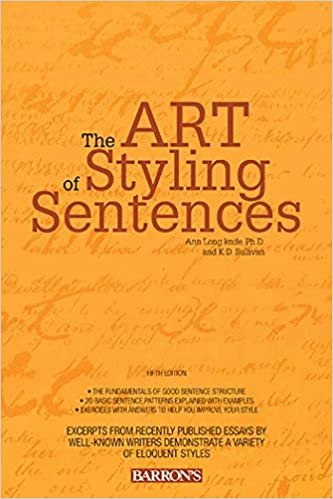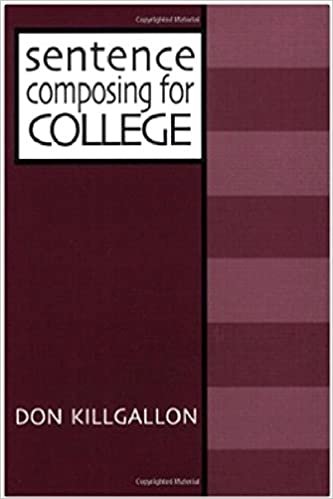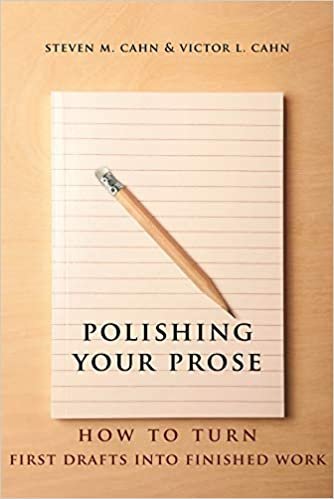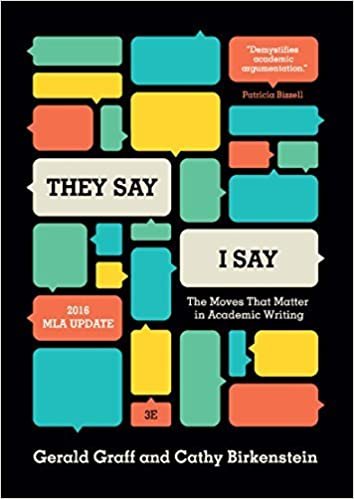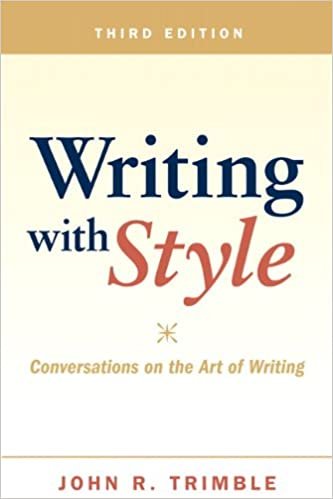Writing Center
Welcome. Below you’ll find links to documents and webpages on the art and science of writing. I encourage you to use this writing center for each essay you’ve been assigned. I owe a debt of gratitude to my former teachers, my past and present colleagues, as well as my former students for helping me to collect these resources through the years. If ever a link stops working, please do let me know, and I’ll fix it ASAP.
style guides and manuals
essay: “A trial, an attempt, an endeavor”
Paragraph: “A sign indicating the start of a new section”
sentence: “A sound in itself”
Word: “to say or to speak”
literary study
model essays
comment codes
sentence revision after you’ve finished a draft of your essay
The following exercises are taken from Cahn and Cahn, Polishing Your Prose: How to Turn First Drafts into Finished Work. Order a copy if you find the selected exercises below helpful.
punctuate the following:
Sentences with Lexical Ambiguity
Avoiding crutches
Vladimir Nabokov
No plot summary. Good news for you: I have read the text you are writing about. Bad news for you: I have read the text you are writing about. There is no need to tell me that Iago is the villain in Othello or that in Jane Eyre, the central character is called Jane Eyre. Find sentences that summarize plot and eliminate them.
Avoid personal judgments. The second point is related to the first: avoid assertions about how good/great/complex the work you are examining is. You don’t need to spend three sentences telling me how important and wonderful Beowulf is (most of you would not anyway!). You also need not acknowledge the complexity of the work, the complexity of the issue about which you are writing, or the complexity of your own argument. We don’t read John Grisham for a reason.
Evade sweeping generalizations. It is intellectually irresponsible to make sweeping claims about all people and the history of time. We are not Fox News; here, we do our homework. Avoid phrases such as these:
“We have all certainly noticed…” (Perhaps not; that is where one’s argument comes in.)
“As everyone knows…” (Who is everyone?)
“Since the beginning of time…” (You’re just asking for trouble.)
“In modern society…” (What constitutes ‘modern’? What is this ‘society’ of which you speak?)
Use problematic, undefined terminology sparingly. If you are going to talk about ‘politics’ or ‘nature’ or ‘society’ – or, better still, employ terms that postdate the text (anachronisms), like ‘feminism’ or ‘homosexuality’ – you need to have a clear idea of how you are using these terms. Do not take them for granted. ‘Nature’ is not the same thing to Wordsworth or Emerson. Your definitions of these terms must come from the text that you analyze, not from your own opinions or biases.
Eschew personal anecdote. Argument is not about what you believe based on how you have lived your life or what you have witnessed or experienced. Your argument should be based on the text and textual – not personal – support and testimony. So none of this:
“Ten years of living in Greenwich Village is enough to convince one that…”
“In my last relationship, I came to believe that what Marvell says about love is right.”
Sweep away personal bias. A critical essay is about your argument, not your biases. This means no sentences like the following:
“My main association with Harlem is that it is filled with crime and delinquency, and so I brought this to my reading of Hughes’ poem.”
“Having a child is so filled with hope and promise for the future that it seems perplexing that the characters are not excited about the arrival of their baby.”
“Women tend to be more in touch with their feelings and emotions than men, and so the story’s female point of view is appropriate.”
None of these statements are necessarily true. Personal opinion and biases are often strong (and sometimes ill-founded and misguided) so as oftentimes to be offensive.
No ‘throwing in the towel’. By this I mean, any statement resembling any of the following:
“It is virtually impossible to say for sure what the definition of X is.”
“People have been arguing about X throughout the history of philosophy, but one cannot come to an answer.”
“It can’t really be said whether X is…”
“This play is so rich that it can be interpreted in a number of different ways.” (Well, yes, but let’s have at least one.)
No intentional contradiction. The following type of sentence does absolutely no argumentative work for you:
“While seals and giraffes have many common characteristics, they also differ from one another in several critical ways.”
“Hamlet’s soliloquies are thematically linked and yet contain several important differences.”
Avoid trendy psycho-babble. Even though Dr Phil and Oprah are the reigning king and queen of this country, avoid words and phrases like:
“the journey of life/love/etc”
“Hamlet was trying to find himself.”
“The speaker is manic-depressive/paranoid/etc.” (No imprecise use of medical terminology. I have doctor friends and they would not be pleased.) Find a better way to describe the “speaker.”
Characters are not people. Bear in mind that it is not the role of a literary critic to form hypotheses about the motivations or inner psychology of a given character. The problem with this is that we can never guess at the feelings or emotions of a character that are not expressed, and one might go so far as to say that these feelings do not exist (that is to say that they are extra-textual (beyond the limits of what we can know from the text).
Paragraphs. Your essays will think in topics, rather than conform to the arbitrary and artificial rigidity of that vile structure. You’ve been taught since your first day of school as a freshman that an essay comes in five paragraphs like a prefabricated home. We want to put an end to that this year and get you to think beyond the 5-paragraph essay. Human beings do not think in five paragraphs. It’s more complicated; ideas must be established, terms must be defined, and the infrastructure must be installed before the real argumentative design takes shape. You need to be in complete control of your essay. You are not hiring DR Horton to build you one of the five predesigned houses that the firm can construct. Don’t be limited. Design your essay like an architect, not just a builder. Your essay must be ‘old’ construction with an unique design and made from the best-quality materials. You build your house to your specifications, picking the finishings, the landscaping, the paint colors, the crown molding. You are to be cautious, however, of endless, unbroken paragraphs.
Kitchen Sinkism. These essays cannot discriminate between evidence that is essential and evidence that is potentially relevant. You will gather a great amount of data in the first part of the writing process, but
Remove wildly florid, overwrought prose. "Verily, the colonial state in Africa indeed formulated a verisimilitude of societal establishments..." (T. Burke, swarthmore.edu). That should speak for itself. On the other hand, we do not want essays that have a similar sentence structure in each paragraph. Diversify. Put your Killgallon skills to work.
Clichés are for the birds (ha, ha). You do not want to rely on hackneyed expressions to make your point; your writing should be fresh and original in both ideas and expression of these ideas.
Avoid assertions about what the author believes. We don’t necessarily know what the author believes, and what an author writes does not necessarily reflect what he or she believes. Talk about what the language of the text accomplishes, not what Shakespeare thinks. A writer and his work are not one in the same. I may even go so far as to suggest that the best way to avoid this is NOT TO USE THE NAME OF THE AUTHOR IN YOUR PAPER AT ALL. Instead of saying, “Shakespeare was against violence and war…”, use “the image/the metaphor/the line/the speech/the word/the poem/the play/the novel/etc. suggest that…”
Eradicate the phrase ‘the human condition’. Please… unless, of course, the text explicitly refers to this concept.
No colloquial or casual language. You do not want to write in an overly floral or jargon-y manner, but you do want to be formal.
You wouldn't swear in front of your mother... Refrain from relying on words or phrases like "a lot;" "this shows that;" "very," "really," "quite" and other excessive adjectival modifiers added for the sake of modifying; "kind of" or "sort of;" and most of all: any form of the verb to use
strong habits
Your claim should not be immediately obvious to a skilled reader who has read the text several times.
Your essays should always be written in the present tense. The theory here is that a literary text is a living, breathing document that you awaken from a coma each time you read it.
A quotation from a text only becomes evidence if you interpret it – that is to say, if you read it in relationship to a strong argument or thesis. You should articulate what is interesting about the textual evidence you use and discuss it at length. Do not quote and then move on. Interpret! Do not quote huge chunks of text at a time; a few lines of text are enough to work with. Stay close to the text.
Bill Watterson, "Calvin and Hobbes"
The second and most important part of a paper addresses the ‘so what’ of your argument (the thesis), which convincingly directs your reader to why your claim is important and interesting in the context of the text. You must ask yourself why what you are saying matters. What is at stake? Why am I reading your paper (aside from the fact that I am paid to do so)?
Ask yourself, ‘Could someone disagree with my thesis?’ If the answer is no, you are not on the right track and are most likely involved in plot summary. I strongly suggest writing in the first person, even though this is probably something that you have been taught not to do in the past. I guess everything you ever knew is wrong! If you use the first person, you are forced to be more argumentative and straightforward (and you will not lapse into the passive voice). This means something like this: “In this paper, I intend to prove that…” You don’t need to overdo it, but this strong “I” can be particularly helpful in writing a focused opening paragraph.
This means referring to the MLA Handbook regularly. One day, you may be able to save a life just because you know proper MLA citation (I have a story.).
Oxford English Dictionary to deepen and complicate the meaning of a text. If you are examining a few lines, look up one or two words that seem to be crucial to the meaning. Trust me: you can get entire arguments just from reading a dictionary entry.
You want to set up your reader’s expectations. Let me know two things: which text you are dealing with and, secondly, what your focus and/or argument is. A good title can involve a quote from a text, a witticism (you know you’re clever), and/or a use of a colon in order to convey more information. Here are some examples:
“Magic in the web of it”: The Multiple Narratives of the Handkerchief in Othello
The Revolting Body and the Promise of Suicide in Sylvia Plath’s “Lady Lazyrus”
“To be or not to be all you can be”: Militarism and War in Hamlet’s Delayed Revenge
Bill Watterson, "Calvin and Hobbes"
